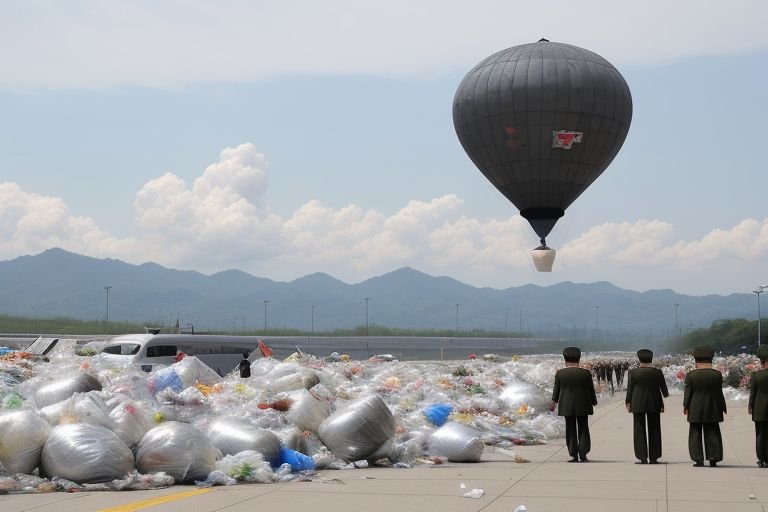
North Korea Launches Trash Balloons Causing Airport Disruptions
Once Again North Korea has raised tensions on the Korean Peninsula by sending lobbing balloons with trash and propagandist leaflets into the South Korean airspace. This particular event has caused huge controversy on the operations of airports in South Korea and has sparked lots of safety concerns.
As per the reports filed by the South Korean military, North Korea floated several balloons carrying timer devices which may cause fires when they touch the ground. They have been drifting into the South Korean territory putting the lives of civilians and infrastructure at risk.
This effect has been worst for air travel. South Korean officials said that till now, these North Korean balloons have closed the airports for 413 minutes in total this year alone. This has caused flight delays and cancellations and foremost, heightened airport security throughout the country.
Although recording and releasing propaganda and trash by balloon is not a new strategy of North Korea, the timer to the balloons elevates the risk of distressed situations and injury. The officials of South Korea are paying attention to the threat and organs regulating the cybersecurity situation have increased monitoring and responding to threats.
The South Korean government has expressed a strong outrage towards these activities, further regarding them as a violation of agreements between both Koreas. The Ministry of Unification has also urged North Korea to stop flying these balloons today asserting that such actions are provocative and detrimental to the cause of reunions on the Korean peninsula through peaceful means.
The observers from the international community have also reacted to this latest development. The United States which is a close friend of South Korea has pledged its support and urged North Korea to avoid doing anything which could cause fear.
It is equally important to note that these balloons of messages are sent at this time when United Nations Security Council is likely to discuss about the No Korean legislatum nuclear programme and the recent military exercise between North Korea and Russia. There are reports from some analysts, that sendings can be the result of the North Korean desire for constant influencing of South Korea and other countries involved without causing strikes back with military forces.
The South Korean leaders have said that they are closely observing the situation and are not ruling out the possibility of taking action to ensure civilians’ security. This includes aspects such as the shoot down of balloons provided they are a present danger to habited areas or important installations.
It has also engendered some discourse within South Korea about the adequacy of current protection against such low technology threats. Politicians and some experts are urging for greater investment in detection and interception capacities targeted at the problem of balloons.
South Korean people especially those in the border region are on alert as the events in the region expire. Local authorities have called on people to contact authorities if they see any object that looks suspicious and advised people not to touch anything that is being blown by wind and might fall on them.
People all over the world are keenly observing the performance of this situation since this is not only the conflict of the two Koreas but the conflict in the Asia-Pacific region. Many fear that this problem can only be solved through diplomatic process and that no more escalation is possible.
Thus, standing before this new test to South Korea, the attack reminds the world of the string of conflicts between the two Koreas as neighbors – a relations that is tangled and may be quite unpredictable at times. The situation shows that constant focus and further activities are required to preserve order and stability in the region using only diplomatic power.


